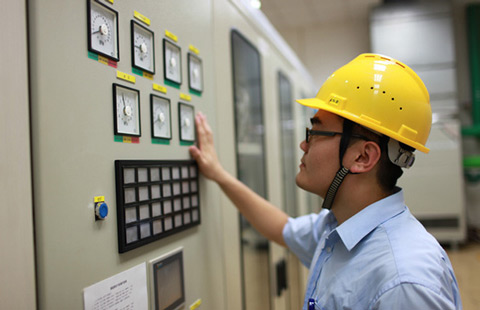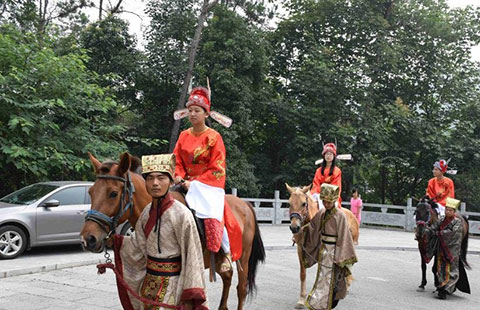Capital region lays out plan for improved rails, roads
Updated: 2015-07-13 07:10
By ZHENG JINRAN(China Daily)
|
||||||||
The Beijing-Tianjin-Hebei region has set ambitious goals for improving its integrated transportation network, with plans to extend high-speed railways and build more highways to aid regional growth.
Within five years, 1,500 km of rail will operate in the region, placing it among the highest regional concentrations of railway in the world, said Li Guoyong, inspector of infrastructure construction of National Development and Reform Commission, the national economic planner.
To promote the regional rail system's growth, the three governments and China Railway Corp have together invested 10 billion yuan ($1.6 billion) to form a special company to manage the increasing number of rail projects.
Long-term plans call for the company to build 27 intercity rails with a total length of 3,794 km, Xinhua News Agency reported on July 2.
Of those rails, work on those linking Beijing to Tangshan in Hebei and to Tianjin's Binhai district will start this year. Construction of another two links connecting Langfang and Zhuozhou, both in Hebei, and the capital airport and Beijing's planned new airport will begin by 2016, the company said.
Company CEO Hao Weiya said the four projects will cost more than 100 billion yuan, of which 1 billion yuan will come from the central government and the rest from other channels, Xinhua reported.
The lack of urban metro and intercity railways has been a major obstacle to smooth exchanges in the region and causes heavy traffic congestion and pollution, said Ye Tanglin, deputy chief editor of the annual Beijing-Tianjin-Hebei Metropolitan Region Development Report.
An action by the Standing Committee of the Communist Party of China Political Bureau requires the governments to make progress in regional integrated transportation, environmental protection and industrial transfer.
In response, Hebei will invest 102 billion yuan this year in transportation, 12 percent more than last year, Gao Jinhao, head of Hebei's Transportation Department, said on June 30 when he introduced the province's efforts to improve the integrated transportation system.
Under the investment, the province will finish five new highways in 2015, expected to bring the province's total highways to more than 6,300 km, the second most in the country after Guangdong province, according to the department.
By 2020, the province will have 9,000 km of highways, it said.
"The transportation network is the fundamental part of the regional integration, so the province will take every effort to push forward the projects, especially the key ones connecting provincial cities with Beijing and Tianjin," Gao said.
Among the rapid expansion of highways, the road surrounding the capital, informally called "The Seventh Ring Road", will be complete and open in 2016, he said.
Of the 940-km road, 850 km will be in Hebei, and most of it is finished already, the department said.
By 2017, the new high-speed railways and highways will form four vertical lines, four horizontal lines and a new circular road to connect the 13 major cities in the region, according to the province's Transportation Department.

 Beijing roasts in high temperature
Beijing roasts in high temperature
 The world in photos: July 6-12
The world in photos: July 6-12
 Djokovic downs Federer to win third Wimbledon crown
Djokovic downs Federer to win third Wimbledon crown
 Top 10 Chinese companies by profit margin in 2015
Top 10 Chinese companies by profit margin in 2015
 No room in the pool
No room in the pool
 Top gaokao scholars saddle up for a ride in the park
Top gaokao scholars saddle up for a ride in the park
 Girl who shoots straight with bow and arrow
Girl who shoots straight with bow and arrow
 Ten photos you don't wanna miss - July 10
Ten photos you don't wanna miss - July 10
Most Viewed
Editor's Picks

|

|

|

|

|

|
Today's Top News
Mexico: Drug lord 'El Chapo' Guzman escapes, manhunt begins
Lawyers held for 'trying to influence verdicts'
Top court official under inquiry for graft
It is wrong to label illegal immigrants refugees: Opinion
Leaders agree on partnership blueprint
New Development Bank launched in Ufa
IMF keeps 6.8% China growth view
Leaders agree on partnership blueprint
US Weekly

|

|






